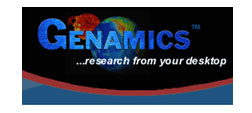Top Links
Journal of Forensic Science & Criminology
ISSN: 2348-9804
Expert Witness’s Decalogue, Revisited
Copyright: © 2021 Ariff S. This is an open-access article distributed under the terms of the Creative Commons Attribution License, which permits unrestricted use, distribution, and reproduction in any medium, provided the original author and source are credited.
Related article at Pubmed, Google Scholar
Published general rules or decalogues (‘ten commandments’) for the expert witness activity have a compass effect that correctly guides the expert witness job. Being aware of those principles, applying and permanently revisiting them are of the utmost importance. In this context, two years ago I published another decalogue (in Spanish). Here, an English version of the document is presented. The aims are to promote a discussion of the topic and reduce the idiomatic bias of the literature by including viewpoints raised in articles written by non-first language English authors. Expert witness report’s effectiveness does not depend exclusively on the performance of an excellence scientifically or technical analysis. Not to forget some others principles is also an ethical duty and one important step for obtaining medico-legal opinions that fulfills the desirable quality.
Keywords:Expert Testimony; Forensic Medicine; Codes of Ethics
The role of an expert witness is to help the court on specialist or technical matters that are within the witness’s expertise. Throughout history, great masters such as Edmond Locard (in France) or Nerio Rojas (in Argentina) have published general rules or decalogues for this activity [1,2]. The same has be done by contemporary authors [3,4], Supreme Courts (e.g. Australia and Canada), jurisprudence (e.g. Frye and Daubert standards in the United States; the Ikarian Reefer in England and Wales), and medical standard setting bodies [5,6].
These precepts have a compass effect that guides the expert witness job. Being aware of those principles, applying and permanently revisiting them are of the utmost importance. In this context, two years ago I published another decalogue in Spanish [7]. Here, an English version of the document is presented. The aims are to promote a discussion of the topic and reduce the idiomatic bias of the literature by including viewpoints raised in articles written by non-first language English authors.
The decalogue is as follows:
The knowledge of relevant legislation is an essential requirement. This is not only to fulfil the obligations established for the task, but also to fully understand the meaning of the legal case in which the opinion has been requested. Moreover, standard or technical guidelines sets the minimum enforceable in the performance of the role. The expert must be up to date with respect to any standard in force. Doing so facilitates the compliance of formalities and allows a proper guidance of the forensic work, in such a way that the obtained report reaches the admissibility and becomes useful to the judicial process.
The expert should be clear about the limits of his/her area of expertise, in order to not accept requests that exceed those borders. Also, if the expert becomes aware whilst working on the case of issues that are outside his/her knowledge, he or she should take over of them in the best way possible or advise that further specialist opinion be sought. Such circumstances should be clearly documented in the report.
The expert must continually update his/her practices, because science and technology are constantly evolving. This task goes beyond sporadic attendance at courses, seminars or conferences, and involves a constant and critical review of the literature, never forgetting that the valid knowledge may not necessarily be accessible in their own language
Many lay people believe that medicine and forensic sciences are infallible. But despite continued advances, science does not have an answer for everything and technology is not infallible. In addition, some methodologies once considered valid are today deemed invalid without necessarily validated replacements [8,9]. Therefore, we need to apply in our practice more "epistemological humility" and less "forensic omnipotence" [10,11]. If the science does not allow to give a definite answer to the raised subject, the expert must make this clear in the analysis and highlight it in his/her report or deposition. Justice operators will need to understand that, to many questions, the correct scientific answer is "we don’t know".
The expert is not a magician nor a soothsayer. To provide an opinion, he/she must collect all the available information and request all the relevant data. This is nothing more than the application of the first step of scientific method, observation. Observation is not fulfilled with randomly picking up what our senses ask for. The expert witness must be extremely meticulous in order to carry out the observations in an attentive, precise, thorough, prompt, impartial, and direct way.
The contribution of scientific truth is the only commitment to which the expert witness must submit. This task forces him/her to follow the Cartesian method rigorously and without skipping any steps. Conclusions should never be drawn up in advance. Orderliness is essential and it is also important not to rely on memory. The expert should seek to divide the difficulties of the case into as many parts as possible, in order to prioritize the information and direct the analysis from the general to the particular, and then from the particular to the detail. In the end it will be possible to establish the path to be taken, assigning with discretion and in a reflective way the order of observations, experiments, verifications, and/or necessary correlations. If the expert does not depart from that route and maintains a permanent critical attitude, the conclusions will flow in an open manner.
The expert's job intrinsically involves a different way of acting and thinking compared with what is expected for a professional or technician who is not performing that role. The expert witness should never make acts of faith, but instead, he/she must learn to doubt. All collected information has to be critically cross-checked with the findings obtained from the assessment, which ones must be faithfully documented. Evidential specimens must be collected, packaged and transported using appropriate methods and chain of custody. If the expert disagrees with something that has been expressed by colleagues, he/she should explain his/her reasons with respect. When writing the conclusions of a report, the expert must be guided solely by what the science (or technical, artistic or practical principles) can support, without omitting relevant information, with complete independence of the theory that proposes the attorney who has requested the opinion and absolute indifference about the legal action's outcome.
Expert's autonomy is the prerogative that allows a full application of the scientific or technical knowledge to the case under analysis. Consequently, expert witnesses must resist every form of coercion and report to the competent authority any act of threat, bribery or extortion.
The witness stand is the only valid tribune for an expert during the judicial process. On the other hand, the judicial reconstruction of the investigated facts must be carried out by the court. In order to contribute to that objective, the expert provides evidence that has emerged from the analysis of what was requested in his/her field of competence; nothing more (but nothing less). Scientific truths may not necessarily match the ones established by the trier of fact. And let's be clear: the expert witness is not a judge or an advocate.
The expert report should be drafted in a methodical, clear, accurate, and simply way, keeping always in mind that it is directed to a lay person who does not have the specialized knowledge. To reach that the expert should avoid all forms of colloquial language susceptible to misinterpretation. He or she must also make sure of the real meaning of the used words, explain any jargon or scientific concept included in the report, and pay attention to the grammatical correctness of the document so that the ideas are linked to each other with logical rigor. Similar caution is to be taken when giving oral testimony at trial, preparing each of the statements carefully and with a constructive spirit.
Expert witness report’s effectiveness does not depend exclusively on the performance of an excellence scientifically or technical analysis. As discussed here, not to forget some others principles is also an ethical duty and one important step for obtaining medicolegal opinions that fulfills the desirable quality. Doing so is crucial for the integrity of legal proceedings and for achieving just rulings in the courts.
I am very grateful to Jason Payne-James and John A. M. Gall for assistance with the language and edition of the manuscript. Prof. Payne-James and Dr. Gall did not receive specific compensation for their work.





































